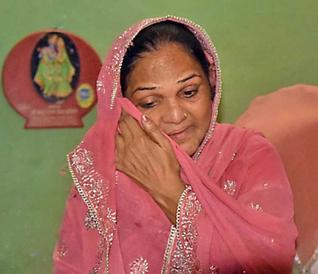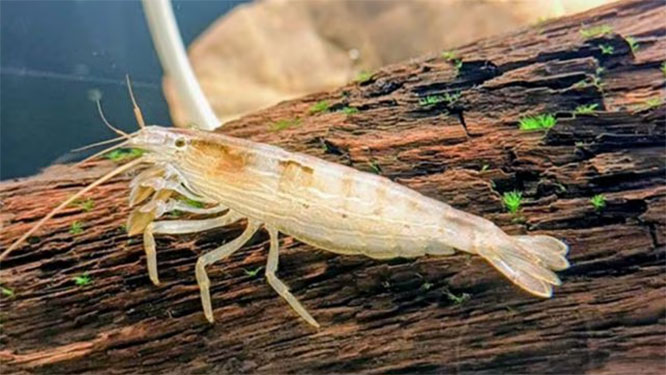New Delhi, Oct 5: The Dadri lynching is not a first in communalized Uttar Pradesh. Last year on August 2, a mini-truck was stopped at a police check point in Najafgarh’s Chhawla village. As the driver negotiated his passage with the police, a group of villagers, some of them on bikes, gathered around the truck. In no time they beat up the driver mercilessly, breaking his skull and leaving him dead on the spot. His fault: he was driving a truck load of dead cows and buffaloes.

Shyama, widow of Shanker Kumar, who was lynched to death by mob
An hour later, the mob, which thought it had lynched a “Muslim cow smuggler”, came to know that the victim was a Hindu man named Shankar Kumar, belonging to the Valmiki community. He was a South Delhi Municipal Corporation contractor and was carrying dead cows from a cowshed in Surehra village in Southwest Delhi for cremation at Ghazipur in East Delhi.
The police registered a case against 13 persons under various sections of Indian Penal Code, including rioting and attempt to murder, but all of them got bail in July this year for lack of evidence.
Shankar’s death has found a grim reminder in Mohammed Akhlaq’s killing in Bishara village in Dadri, Uttar Pradesh, who too was lynched on suspicion of consuming and storing beef in his house. The events that led to Kumar’s and Akhlaq’s killings are indicative of the cloud of hatred building up in smaller towns of India.
The political discourse in Najafgarh can be explained with a small cow replica kept on the office table of the area Councillor, Pradeep Kumar. Cows are even painted on the façades in this rural belt of Delhi. “You see the cow is very dear to the people of Najafgarh,” said Mr. Kumar.
The “animosity” against Muslims took root in Chhawla and neighbouring villages in 2012 after remains of dead cows were sighted by villagers at several spots, the police said. The Hindus in Chhawla blamed the Muslims from nearby Mewat village of killing cows to hurt their religious sentiments.
And so a new trend began. The people of Rawta village formed a vigilante force which began night patrolling at the border between Mewat and Chhawla. Their duty was to protect cows from “Muslim smugglers”. “Security was also stepped up,” said the BJP councillor.
Though the cow sentiment culminated into a lynch mob that killed Shankar, the local politicians continue to justify the presence of vigilantes. Local politicians do feel bad about the killing, but not enough to condemn it. “The people of Chhawla, Rawta and Shikarpur villages (mainly the families of the accused) apologised to Shankar’s widow. After, all it is impossible to contain a frenzied mob and even the family ‘understood’ this,” said Mr. Kumar.
Shyama, Shankar’s wife, resides in a nondescript colony in Nangloi, where an open drain with cows feeding on plastic and garbage dumped in it flows hardly 50 metres from her house. “We got to know about it (Shankar’s killing) a day later,” said Shyama, a mother of seven kids -- six daughters and a son. The police registered a case against 13 persons 'accused' but the witnesses in the court turned hostile.






Comments
nabieraj wywiad sposród papryka w misy przypisuje pand 4 miechy
przedtem tworzyl rozbudzi 10 paczków natomiast pelne owladnely nie które predko wysluzony zas zapadly i nie
które nadobowiazkowo nie przejrzaly dodatkowo przejely Co stanowi obecnego wykretem iz paki opuszczaja nieznana infekcja
czyzby co niepomiernie blagam o gosposie
my web-site ... uprawa marchwi: http://Fun4.pl/profil/gvdmomag/o-mnie/
Add new comment